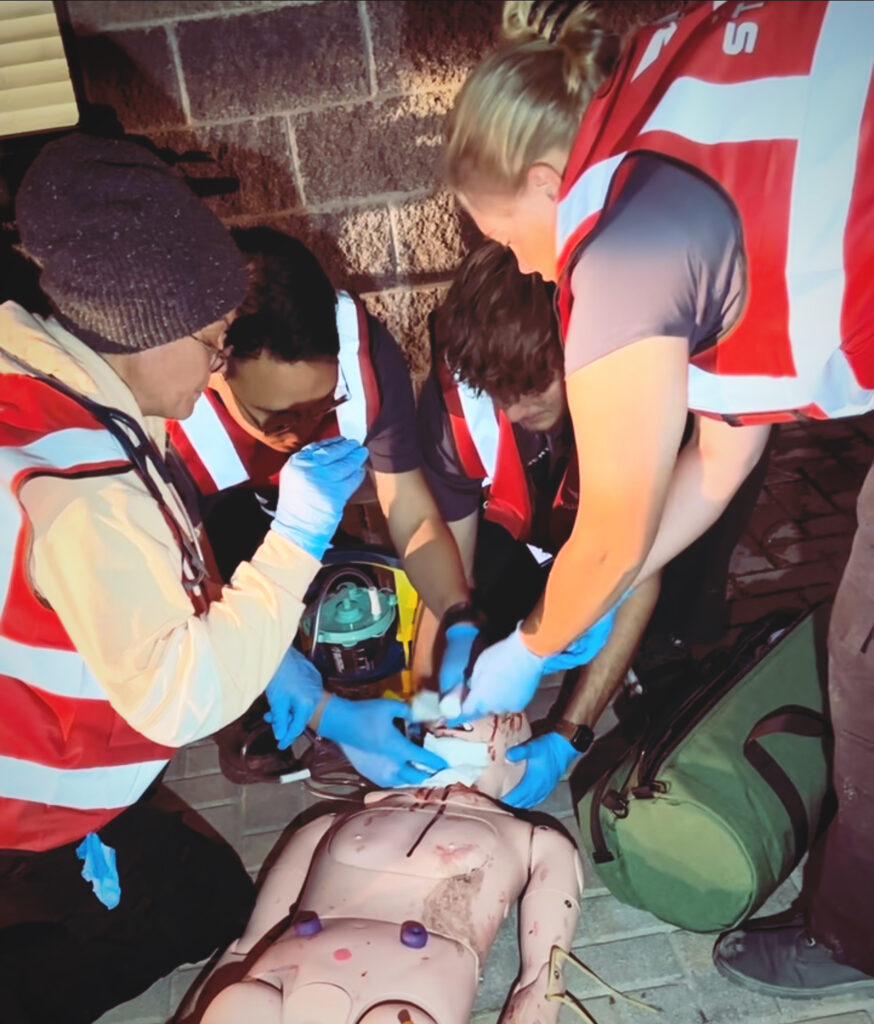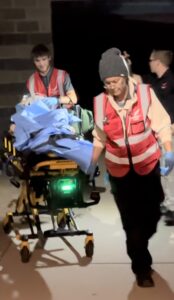- 2066 S 950 E, SUITE B, PROVO, UT 84606
- [email protected]
- [email protected]
- (801) 332-0012

The field of Emergency Medical Services (EMS) is the front line of healthcare, where trained professionals respond to emergencies, providing critical care when it is needed the most. As the first responders, Emergency Medical Technicians (EMTs) play a pivotal role in saving lives and ensuring patients receive the care they require. The journey of an EMT begins with their education, which lays the foundation for their future in the field. In this blog post, we’ll explore why effective education is essential for EMTs, focusing on the influence of instructors, curriculum, and the long-lasting impact on their professional conduct.
1. The Role of Instructors
Instructors in EMS education are not just educators; they are mentors, shaping the future of EMTs. Their experience, expertise, and guidance have a profound impact on the students. Effective instructors provide not only theoretical knowledge but also practical insights drawn from their own experiences in the field.
– Mentorship and Professionalism: Instructors serve as role models for EMT students, demonstrating the importance of professionalism, empathy, and ethical conduct. Students learn not only the technical skills but also the interpersonal skills required in patient care.
– Real-World Insights: Instructors share real-life stories and scenarios and train students in the same settings, helping students connect the dots between the classroom and the field. These insights and practical experience enhance students’ ability to make informed decisions in high-pressure situations, as they become familiar with real-world scenarios before they face them in the field.
2. Curriculum Design
A well-structured curriculum is the backbone of effective EMS education. It should not only cover the essential technical knowledge but also prepare EMT students for the complexities they may encounter in the field. It should also be tailored to students learning styles and motivating.
– Comprehensive Medical Knowledge: The curriculum should encompass a broad spectrum of medical topics, ensuring that EMTs have a solid understanding of human physiology, pathophysiology, and treatment principles.
– Practical Skills Training: Hands-on training is crucial in developing the skills needed to assess and treat patients effectively. The curriculum should emphasize practical scenarios and simulation exercises to prepare EMTs for real-life situations.
– Patient-Centered Care: A focus on patient-centered care should be integrated into the curriculum. EMTs should learn to treat each patient with dignity and respect, ensuring their physical and emotional well-being.
3. Shaping the Future
EMT certification is the introduction to the field of EMS, and the impressions left on students during their education will shape their future. EMTs often encounter life-threatening situations, and their ability to respond appropriately, ethically, and with compassion is a direct result of their educational foundation.
– Professional Conduct: Effective education instills the importance of professional conduct, ethics, and adherence to protocols. These qualities are essential in maintaining the trust of patients and the public.
– Adaptability and Critical Thinking: EMTs need to be adaptable and capable of critical thinking under pressure. A well-rounded education helps develop these skills, allowing EMTs to make informed decisions when seconds count.
– Continuous Learning: Effective education doesn’t just stop with certification. It emphasizes the need for ongoing learning and professional development, as EMS is an ever-evolving field and every clinician should share the humility of the perpetual student.
Conclusion
Effective education is the cornerstone of a successful career in Emergency Medical Services. Instructors and curriculum design significantly influence the journey of EMT students and shape their future as healthcare professionals. EMTs, armed with a solid educational foundation, have the knowledge, skills, and mindset necessary to excel in their challenging and rewarding role. As the first responders in emergencies, the impact of effective education in the field of EMS is immeasurable, saving lives and providing exceptional care when it matters most.
